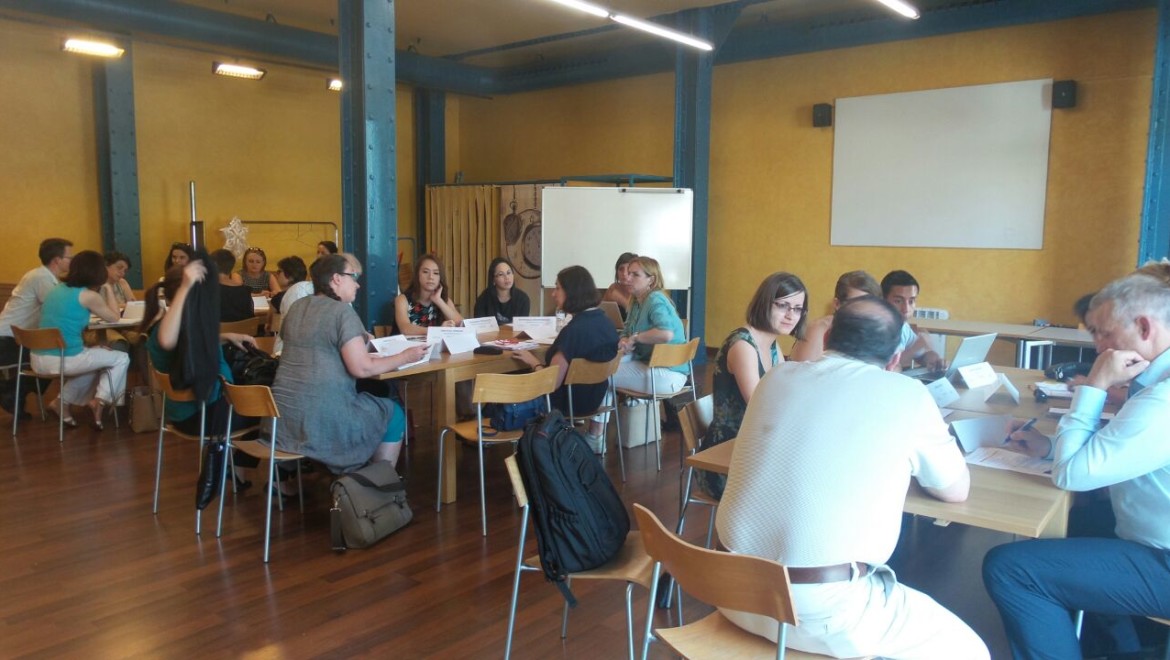The second edition of Art of Food: Culture and Food Diversity took place in the afternoon of July 1st in Barcelona. This edition aims to explore two areas of interest: Free Trade and its impact on Culture and Food Diversity, and Gastrodiplomacy. Diane Dodd, IGCAT’s director, addressed a warm welcome to the participants of the event that is taking place in the auditorium of the Museum of Catalan History, located in an old 1881 trade warehouse and is the only building of the old industrial port of Barcelona to be fully conserved. The building was converted into a Museum in 1996, and is dedicated to making Catalan history and culture better known at home and abroad. The event was organized with great support by the Agència Catalana de Turisme.
The first topic discussed yesterday was chosen as a follow-up to the Art of Food 2014 edition when participants looked at the challenges posed by widening markets. Concerns about the effect on specific sectors (agriculture, industry, cultural products and services, food, tourism etc.) as a result of the Transatlantic Trade and Investment Partnership (TTIP) between EU and USA and the Comprehensive Economic and Trade Agreement (CETA) between EU and Canada, were on the agenda. These two free trade agreement are currently being negotiated and will set the legal framework for trans-Atlantic trade in the future. The session explored the legal implications and addressed the challenges for protecting culture and food diversity in the future. It also explored the tourism potential in supporting food and culture diversity. The session counted with three distinguishes keynote speakers: Prof. Roberta Garibaldi, from University of Bergamo, Italy; Prof. Janez Bogataj, from University of Ljubljana, Slovenia; and Dr. Jutamas Wisansing, from Perfect Link Consulting Group Co.
IGCAT believes that today’s exciting developments are in regions where convergence is happening in tourism, culture, arts and gastronomy. With this aim in mind, three groups discussed the ways culture and food diversity can be a driver for tourism, the keys for success in a food tourism destination, the profile of a typical gourmet tourist, how regions and cities can support food and cultural diversity, and how the public support of cultural and food diversity can be measure. The session of today will exhaustively cover the emerging topic of gastrodiplomacy.
2 julio 2015
